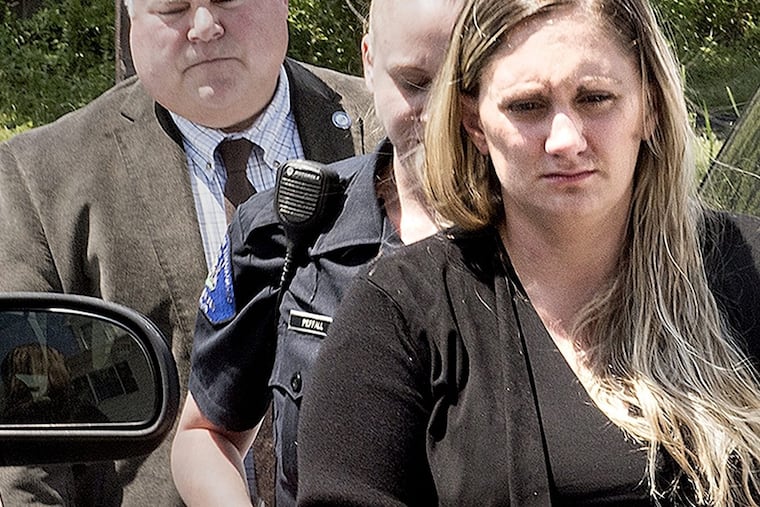In the opioid epidemic, breastfeeding emerges as a possible crime
Can woman on opioids nurse her baby to death? The medical science and legal issues are complicated.

Even when new mothers are battling addiction, the women and their infants "stand to benefit significantly from breast-feeding," the Academy of Breastfeeding Medicine has said.
But that international expert organization also says many complicated factors make nursing "a difficult choice" for such women.
A chilling new factor has emerged in the opioid epidemic: A woman may be accused of murder by breast-feeding.
Earlier this month, a 30-year-old Bucks County woman was charged with criminal homicide in the April 2 death of her 11-week-old son. The Bucks County District Attorney's Office said an autopsy found the infant died from "a lethal combination" of methadone, amphetamine, and methamphetamine, allegedly transferred through Samantha Whitney Jones' breast milk.
While unusual, similar prosecutions of nursing mothers whose babies died have occurred in recent years in South Carolina, California, and Washington.
These cases fit within the larger debate over whether women in addiction should be given help, as medical groups and women's advocates believe, or punished, as many lawmakers and law enforcement officials argue.
"It becomes another way to criminalize women for their reproductive choices," said Margaret Zhang, a lawyer with the Women's Law Project. The Philadelphia nonprofit is representing a woman charged with child abuse because her newborn baby had to be treated for drug withdrawal symptoms.
>> READ MORE: Pa. law aims to protect newborns of moms in opioid addiction
An estimated 5 percent of pregnant women use one or more addictive substances, according to the National Institute on Drug Abuse.
Many wind up taking prescribed opioids — methadone or buprenorphine — in a medication-assisted treatment program to manage their cravings, prevent withdrawal, and avoid the miscarriage risk of quitting opioids cold turkey.
However, newborns exposed even to legally prescribed and medically monitored opioids still can suffer withdrawal symptoms. They may spend days or weeks in the hospital getting oral morphine or methadone to gradually break their drug dependence.
>> READ MORE: Babies addicted to opioids: A crisis crying for a count
The Academy of Breastfeeding Medicine and other groups agree that a woman who is on methadone maintenance therapy should be encouraged to breast-feed.
"There is very low transfer of methadone in breast milk," said Diane L. Spatz, a nurse researcher and lactation program director at Children's Hospital of Philadelphia. "And there are true benefits to breast-feeding. Their babies have less withdrawal symptoms, and they're easier to soothe."
Unlike formula, breast milk also reduces severe diaper rash on the baby's skin, Spatz said.
Amphetamines and methamphetamines are a different story. Research shows these stimulants persist in breast milk for up to 30 hours after drug use, are transferred in high concentrations to the baby, are not cleared by the baby for many hours, and overstimulate the infant's nervous system.
"It can affect breathing, heart regulation — every single thing in the body," Spatz said. "There is one published [medical journal] case of an infant death after methamphetamine" exposure.
Spatz said Jones' case raises many questions, including whether health-care providers missed opportunities to intervene. Jones told prosecutors she had been prescribed methadone to help her overcome a painkiller addiction.
Methadone therapy typically requires clinic visits several times a week.
"To me, we need to help moms get treatment," Spatz said. "Where were they in terms of working with her? Where was her followup? It's really sad."